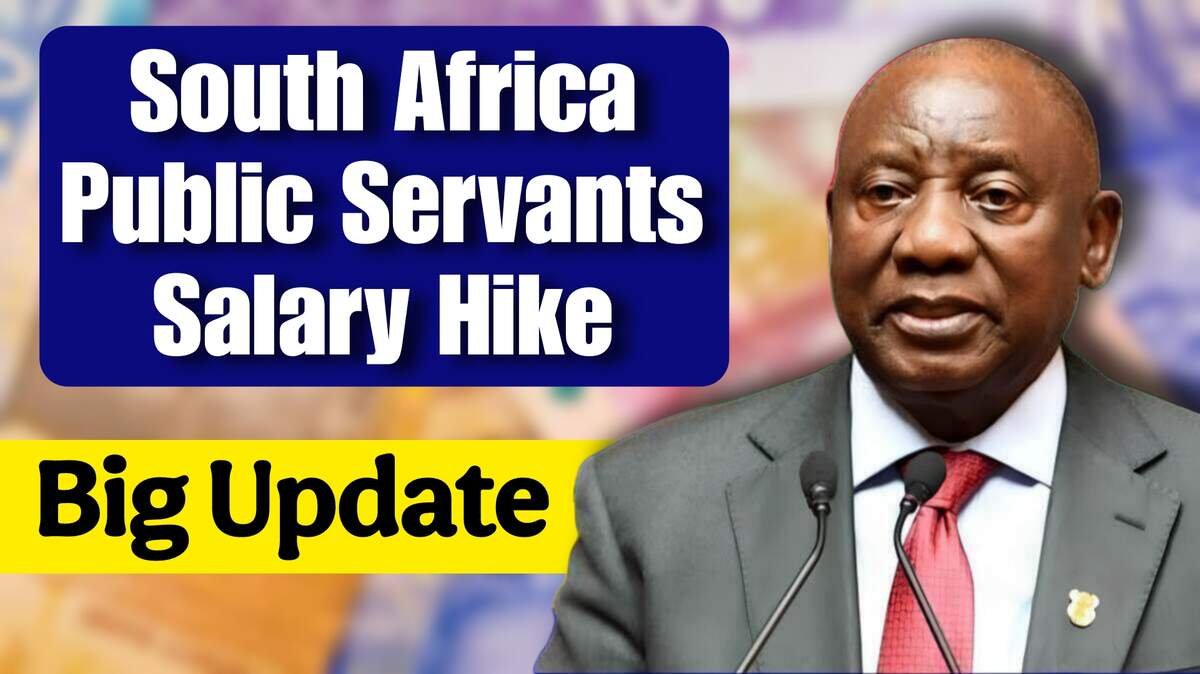The South African government has formally announced a 2025 wage increase for the country’s civil servants, drawing a lot of public discussion. The same measure aims at the rising cost of living and economic hardship of millions of public sector employers. Here then are the fine details of the kind of salary increase, and the impacts follow.
A Brief Look At Wage Increase
The wage increment effective from 1 January 2025 is for over 1.2 million public workers among whom are teachers, nurses, police officers and office staff. The wage increase is part of the larger agreement between the government and public sector trade unions and has taken months of negotiations.
- Percent Increase: The wage increase affects public servants across all levels amounting to 7.5% raise.
- Back Log Pay: At the same time, the government has agreed that the salary hike should be carved to February 20, 2024, for which public workers will receive a lump sum for payment in the delayed implementation.
- Living Allowance: In addition to salary increment, an enlarged “cost of living” claim will be given to workers.
What Prompted The Salary Hike?
In this regard, the rise in inflation is likely to deflate wage earners as its impacts would be on affordability. As per the reports, public sector unions have criticized such stagnancy in rates, saying that such stagnancy have pushed the working people to the brink, thus making them difficult to keep up with accommodation, transport, and food rate increases.
Afrekenje With Public Servants
The wage bill adjustment has already been critical in appreciating the condition of public servants reeling under economic strains as well as the necessity of maintaining high morale and productivity in essential services.
Of what benefit is the adjustment amount to the public servants?
- An increase in welfare: Since inflation has caused increased living expenses, the salary increase is likely to cause a net increase in most workers’ or households’ spendings.
- More motivation: Such compensation from better wages is most likely going to increase morale and, thus, handsomely increase productivity in such vital services as healthcare and education.
- Debt Relief: Many rely on loans for their expenses. However, there is some reprieve coming with the hike in salary, which will reduce the credit burden on this sector.
Challenges And Concerns
It is believed that most workers have welcomed the increase. However, there are still challenges:
- Economically Pressured Government: Critics argue that the increase in salary also lays additional pressure on the already tight fiscal budget. Much of the upcoming spend-there are pressing infrastructure and unemployment issues, among others.
- Union Expectations: Most unions do support the deal, but a few have taken issue with it because it does not acknowledge the gap between wages and the cost of living.
Expert Analysis
Economists are mostly optimistic that this measure will keep the labor force steady and efficient under greater pressure by way of the public sector. They do, however, warn that further adjustment might still be necessary if inflation continues to climb.
Also Read: South Africa’s New Driving License Rules 2025: How They Affect You
